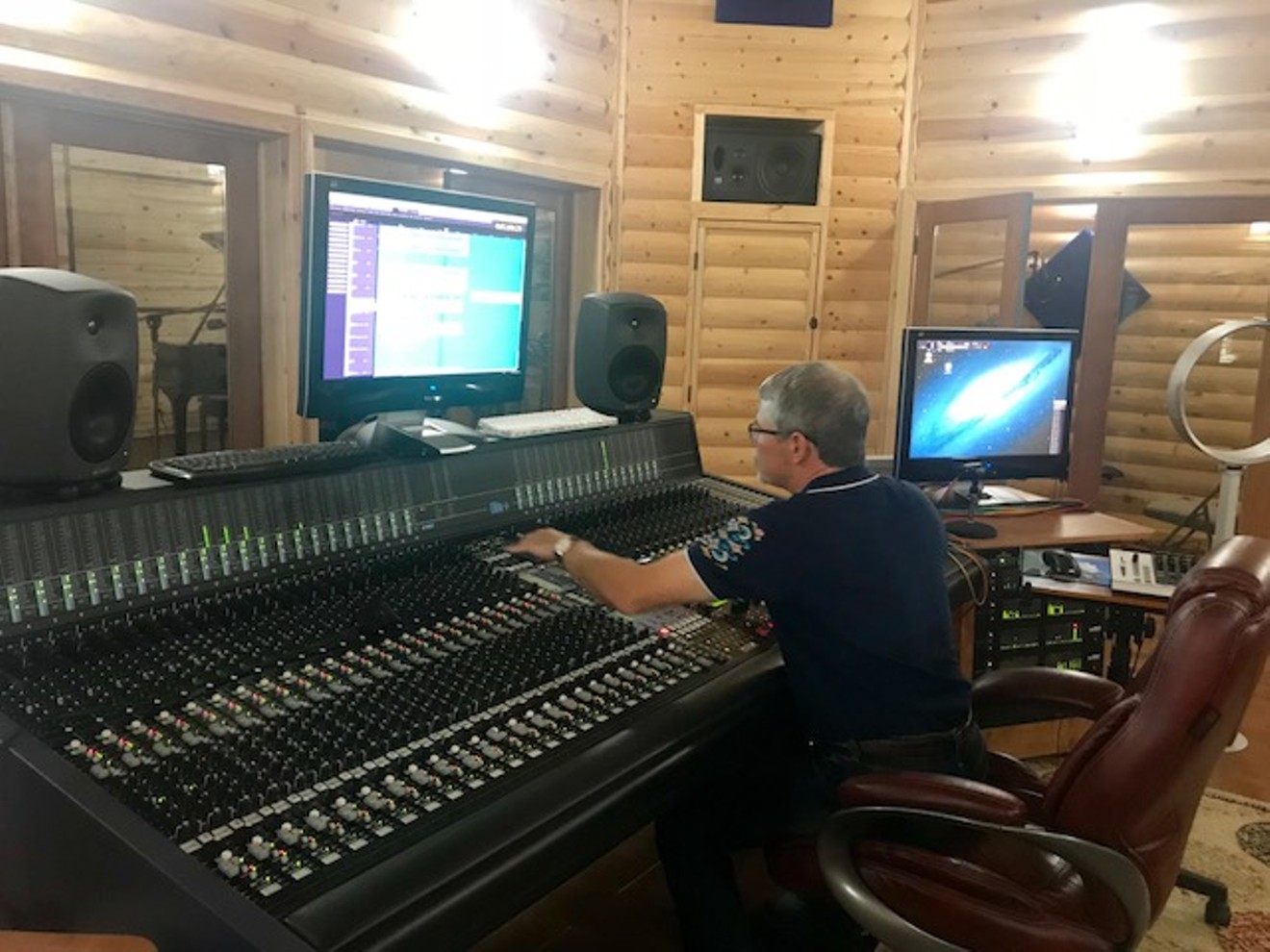Actually, two cabins are located on the five acres. One is a home built with logs from Willie Nelson’s original roadhouse. The other is a recording studio so serene it borders on the sacred. But don’t let that fool you. From its pine log walls to its gold-plated microphone, the cabin was created specifically for sound.
“It’s actually an eco-friendly studio,” says Chuck Ebert, who owns Cabin Record Co., a division of Axon Entertainment. “We do A to Z in the music industry. We’re an independent label on a major scale.”
Ebert, a Grammy Award-winning producer, has worked with artists like Kris Kristofferson, The Jordanaires and the Dixie Chicks. Currently, he’s working with Jeff Clayborn, whose “Caddy in the Campground” is climbing the country music charts and whose full CD is due out this fall.
Sitting in a control room with 18-foot ceilings, Ebert shared how the initial lyrics for “Caddy in the Campground” had been hastily scrawled on a napkin at the Grammys a few years ago. The song’s music video stars a daddy’s girl who takes a wrong turn in her Cadillac and ends up mystifying some male campers.
Things have changed a bit since Ebert entered the music business 30 years ago. His hair’s not as long, and he no longer lays carpet between gigs. He also says there’s not as much pay involved for artists and publishers, but it’s easier than ever for musicians to get their music out there with Spotify, iTunes, Amazon and YouTube.
No matter what the format, he says he’s here to help.
Although Ebert hails from Bossier City, Louisiana, and has worked in places like Nashville, New York and Los Angeles, he’s made Fort Worth home. In 2009, he and his wife, Katy Gaby, a singer/songwriter and multi-talented musician, opened their recording studio.
“It’s 2,400 square feet of recording bliss." – Chuck Ebert
tweet this
“It’s 2,400 square feet of recording bliss,” he says of the former barn technically located at 1510 Riverbend Street in Azle.
Ebert works his magic from a massive Otari Elite+ console that was once used in Star Wars: Episode 1 — The Phantom Menace. He produces all types of music. But whether it’s country, rock, gospel or indie, he says he uses real musicians and doesn’t use Auto-Tune.
And he can always tell when the universe aligns.
“Sometimes it’s magic in the mixing,” he says. “Sometimes, it’s in the master. Sometimes, it’s just in the performance.”
Ebert says he does what he does to “get the most out of somebody else [and] watch them achieve what they hear in their head” rather than it just “being an idea in their head that they can’t express.”
“It’s very gratifying to do that,” he says.
Ebert, who started writing songs as a teenager, helped write lyrics on Clayborn’s self-titled EP, and Gaby performed the background vocals.
Although he works with artists everywhere, Ebert says he’d like to raise more awareness about the top-notch engineers and studios here in North Texas.
“Home studios are everywhere,” he says. “But professionally, it’s a small world.”











